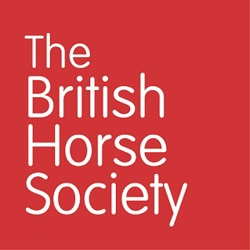What to expect at your inspection
Our inspector uses the visit to your centre to offer the opportunity to meet with you, see the horses and ponies in your care and to gain an overview of general everyday working practice and activities – all of which helps them to understand how your centre operates.
Approved Centres frequently have differing unique aspects that not only help to retain current clients, but also attract new ones to their door, and we are keen to recognise such aspects when an initial assessment is made.
A tour of the yard with the inspector to view the facilities, with further observations and informal discussions. This also allows for questions and answers about the assessment criteria and your centre. The assessment focuses upon the below areas and working practices within a centre.
Horse care
chevron-down
chevron-up
This section focuses on bio-security, a centre having sufficient experienced staff to oversee the welfare of all horses on site plus records/access to care plans such as worming, dentistry and shoeing/trimming. The welfare of the horse is the most important aspect of any professional equestrian centre.
Safeguarding
chevron-down
chevron-up
Here relevant Criminal Record Checks (DBS in England and Wales, Access NI in Northern Ireland, PVG in Scotland and Garda in Republic of Ireland) checks need to be in place for staff, depending upon their role within the Centre. It’s worth considering which member of staff can undertake the role of being the Safeguarding Officer (person responsible for Safeguarding) for your Centre. There is no legal requirement within local authority licensing to have any safeguarding in place, so this not only makes our Approved Centres unique but is certainly appealing to those looking for a Centre to learn to ride or further enjoy their time with their horse.
Client experience
chevron-down
chevron-up
Now we look at the overall impression of the Centre. Is the Centre safe, secure, and welcoming to clients – both old and new? Are there clean rest areas or somewhere to sit? Friendly, approachable staff? Is there relevant information available for all clients? Is there a clear communication system in place for both staff and clients alike?
Coaching/Trekking standards
chevron-down
chevron-up
Centres are checked to make sure there are qualified staff available to provide lessons, and any trainee coaches have someone more experienced there to support them should they need it. Centres should also have suitably qualified first aiders available should an accident happen (minimum BHS or FAW trained, emergency courses are not acceptable) For centres that offer hacking and treks, they will need to demonstrate that their ride leaders are suitably experienced to lead rides over the various terrain they will have access to.
Facilities
chevron-down
chevron-up
Both horse and human! Clean toilets, suitable stables, safe and well-maintained arena(s), safely stored show jumps, correctly maintained cross county course (if applicable). An older Centre can be just as Highly Commended on facilities as a new, purpose-built Centre if the facilities are maintained correctly.
Tack and equipment
chevron-down
chevron-up
Safe and correctly fitting tack is of paramount importance for both horse and rider comfort and welfare. The Inspector will check if any riding/trekking centre tack is inspected regularly for signs of wear and tear and clearly labelled to prevent any mix ups on a busy Saturday morning.
Grassland and turnout
chevron-down
chevron-up
We recognise that in some areas, access to grazing may be limited so its use needs to be well managed. The Inspector will ensure that there is safe fencing with a visible grassland/turnout management plan. Grazing should be free from poisonous plants and removal of droppings well managed. It should have access to water and shelter. Access to individual turnout, if needed, is a bonus as is hard standing in all gateways.
Working practice
chevron-down
chevron-up
The not so fun but very important part! Essential for both reputational and business protection. Centres will self-declare that their paperwork is in order, with key documents having to be submitted in advance of the visit, and the inspector may complete a spot check during the visit. We will also check risk assessments are in place, plus accident reporting procedures and relevant insurance and licensing documents. Good employment practice is key to retaining your hard-working staff – so employment contracts and development plans for staff will need to be in place.
Grading
Individual grading is awarded for each of these areas as this helps to recognise the differing business models that comprise membership to the scheme, for example, a Trekking Centre may not have a large outdoor arena, but they undoubtedly would have superb access to glorious countryside to ride over! There are two grading levels of Approval within each inspection area.
The first level is Approved where all points on the criteria must be met.
The second level is Highly Commended where at least 50% of the points need to be met to achieve this level.
This allows strengths within the range of differing business models that we approve to be recognised on each individual basis. The only section this does not apply to is the Safeguarding section as there is only one level, Fully Compliant, and all points must be met to achieve this.
How we can help
-
Whether it be a risk assessment or rider registration form you need, once you apply you will have access to all of our templates. Our friendly team is always happy to help so if you aren’t sure about any part of the criteria, please don’t hesitate to get in touch. You can phone on 02476 840509 or email approvedcentres@bhs.org.uk



